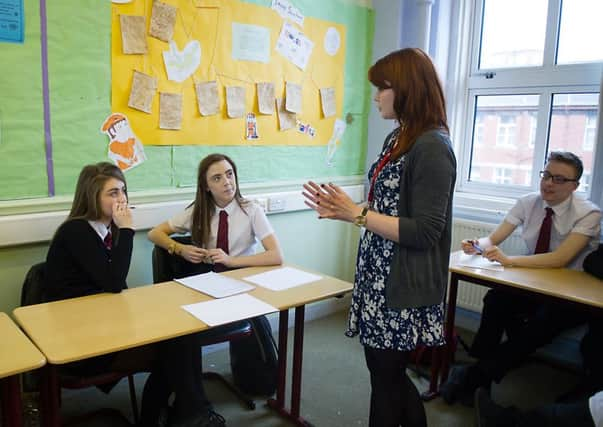Satisfaction with public services hits ten-year low


The Scottish Household Survey 2016 found 56 per cent of adults were happy with local health services, schools and public transport.
That compares to 57 per cent when the question was first asked in 2007 and a high of 66 per cent in 2011.
Advertisement
Hide AdAdvertisement
Hide AdWhile satisfaction with local schools has fallen from a high of 85 per cent in 2011 to 73 per cent, this is due to an increase in the number of people who are neither satisfied nor dissatisfied.
However, the survey found those who have children in school were happier with the service than those who do not, with satisfaction at 88 per cent among service users.
Those who lived in rural areas were more likely to be satisfied with their school than those in cities (78 per cent compared to 67 per cent) while the opposite was true of public transport (49 per cent compared to 80 per cent).
Less than a quarter (23 per cent) felt they could influence decisions affecting their local area, falling to 21 per cent in the poorest parts of Scotland.
Advertisement
Hide AdAdvertisement
Hide AdThe wide-ranging survey also revealed a rise in the proportion of Scottish households in the private rented sector, from five per cent in 1999 to 15 per cent in 2016.
Over the same period the percentage in social housing fell from 32 per cent to 23 per cent, while owner occupation remains at about 61 per cent.
More than nine in ten adults thought their neighbourhood was a good place to live, but that dropped to just three in ten in the most deprived areas of the country.
The proportion of households reporting that they manage well financially increased from 48 per cent in 2013 to 56 per cent.
Advertisement
Hide AdAdvertisement
Hide AdOther findings include a rise in physical activity, from 75 per cent who had been active in the previous four weeks in 2011 to 79 per cent, attributed to an increase in recreational walking.
More than half of adults (55 per cent) now view climate change as an immediate and urgent problem, up five percentage points from 2015, while cultural participation is also on the rise in Scotland.
Responding to the findings, Deputy First Minister John Swinney said: “We see in the findings that, since 2007, people in Scotland are better off financially, more qualified, more active and more culturally engaged.
“Satisfaction with people who use our public services remains high but we can and must go further.
Advertisement
Hide AdAdvertisement
Hide Ad“That is why our bold Programme for Government includes major reforms in education, health and justice, new opportunities and important measures to safeguard the environment and improve the quality of housing.
“This is supported by a local government finance settlement which includes an extra £160 million to support investment in local services.”